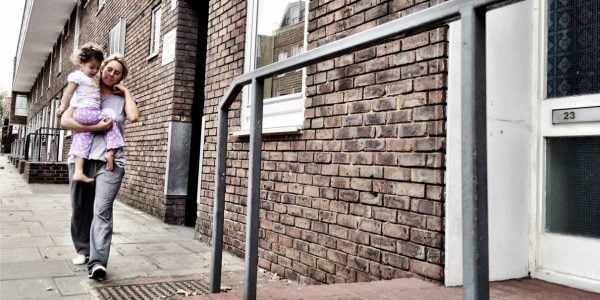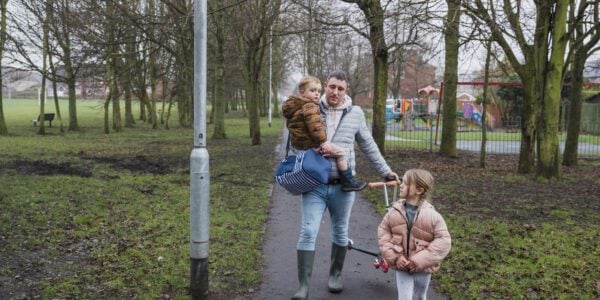
24/01/22
3 min read
The final report from COVID Realities, a research programme documenting the everyday experiences of families with children living on a low income, is published today. It concludes that the pandemic has exposed and exacerbated problems with the UK’s welfare system and calls for urgent reforms to protect low-income families from extreme hardship.
Funded by the Nuffield Foundation, researchers from the universities of York and Birmingham and the Child Poverty Action Group (CPAG), worked with over 150 low-income families with children during the pandemic.
They recorded the multiple financial pressures parents and carers on low incomes faced and how these were often made worse by the social security system itself, due to factors such as the five-week wait for the first payment of Universal Credit.
The researchers worked in partnership with parents and carers to produce detailed recommendations for change, which include a focus on the need to improve interactions between frontline staff and claimants, as well as increasing financial support.
Victoria, a COVID Realities participant said: “Maybe one day my children or grandchildren might read this study, might see these articles. Maybe someone will read about the woman who cries over bread… Perhaps people can learn from our voices… I’d be happy to be a whisper in history if in the future no one is left fearing homelessness or starvation. We have the resources. I hope the future will be more empathetic.”
UK social security system is unfit for purpose
Lead author of the study, Dr Ruth Patrick, from the Department of Social Policy and Social Work at the University of York, said: “Our social security system is currently ill-suited to protect people from poverty, and to provide individuals with some level of security as they navigate what are often temporary challenges in their lives – for example, the loss of a job, relationship breakdown, parenting and care work or ill health. This was clear before the pandemic, but COVID-19 further exposed and highlighted just what it means when your social security system is simply unfit for purpose.
“For example, when schools closed, low-income families not only had to worry about having their children at home, but how they might feed them and keep them warm, such is the extent of the poverty they face.
“The income insecurity families are struggling with is a result of political choices, choices which can be just as easily undone. Our report sets out a detailed set of recommendations for making social security fit for purpose. These recommendations have been developed by parents and carers living in poverty, who are themselves at the sharp end of the current cost of living crisis.”
Families experiencing endemic anxiety
The study found that the temporary increase to Universal Credit implemented during the pandemic, although welcome, led to families experiencing endemic anxiety as they worried about how they would manage when it was withdrawn. The researchers also note that many families fell through the cracks as millions of claimants on legacy benefits and those subject to the benefit cap did not receive the uplift, while, even with the increase, families still struggled with hardship.
The report’s recommendations include:
- Provide a single point of contact / caseworker and give caseworkers reasonable caseloads.
- Train staff to take a person-centred view and understand the impact of disabilities, domestic abuse, and racism.
- Remove the five-week wait for Universal Credit and reduce the maximum debt deduction to 20%.
- Support claimants to pursue a wider range of opportunities including training and education.
- Recognise the value and demands of unpaid care work.
- Make benefit sanctions a last resort.
Alex Beer, Welfare Programme Head at the Nuffield Foundation said: “This collaborative research captured, in real time during the pandemic, the experiences of families on low incomes and the responses of the social security system. It highlights the financial uncertainty families face, the challenges of interacting with the benefit system and the resulting, negative impact on people’s mental health. The government needs to attend to the adequacy of social security benefits – even more so as costs of living rapidly increase – and ensure a people-first approach in the delivery of benefits.”
Alison Garnham, Chief Executive of Child Poverty Action Group said: “The parents in this research expose a social security system that is letting millions of families down. Their anxiety and exasperation are palpable but they are precise about what must change. Sticking plaster responses are not enough– what’s needed is systemic change, so that any family who needs it has a safety net capable of carrying them through tough times. As the cost of living crisis deepens, that is a critical message for the government to hear.”





















































